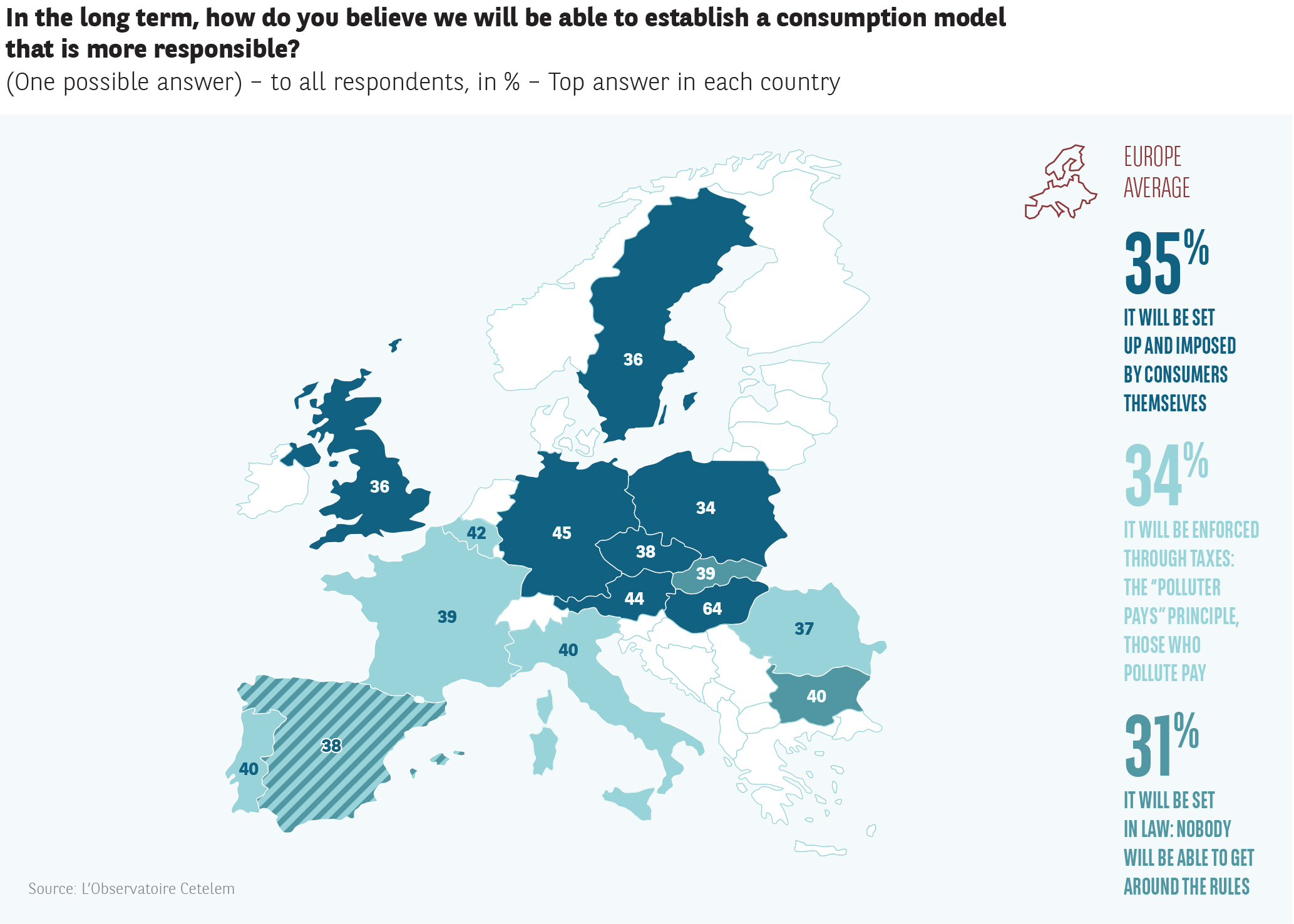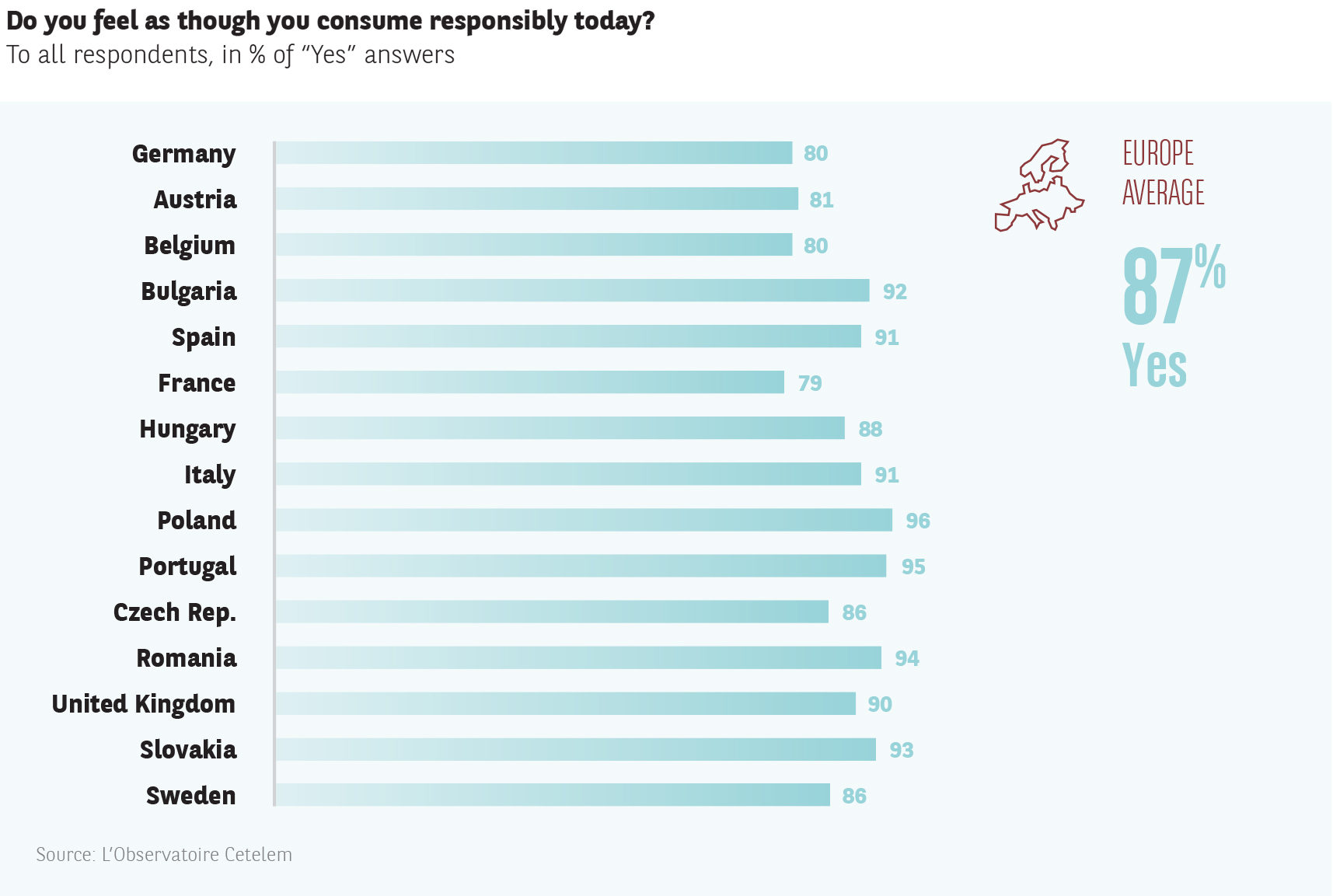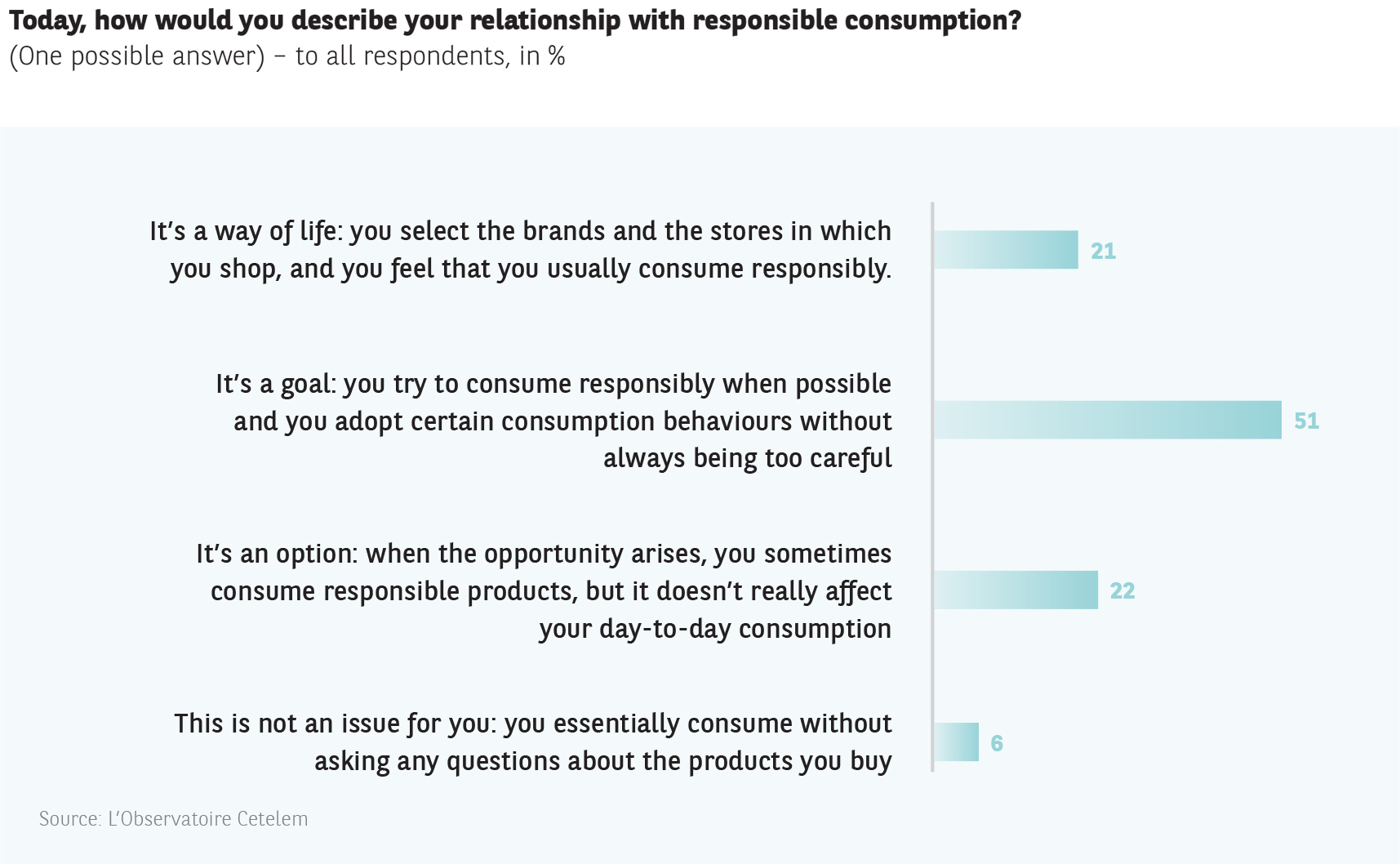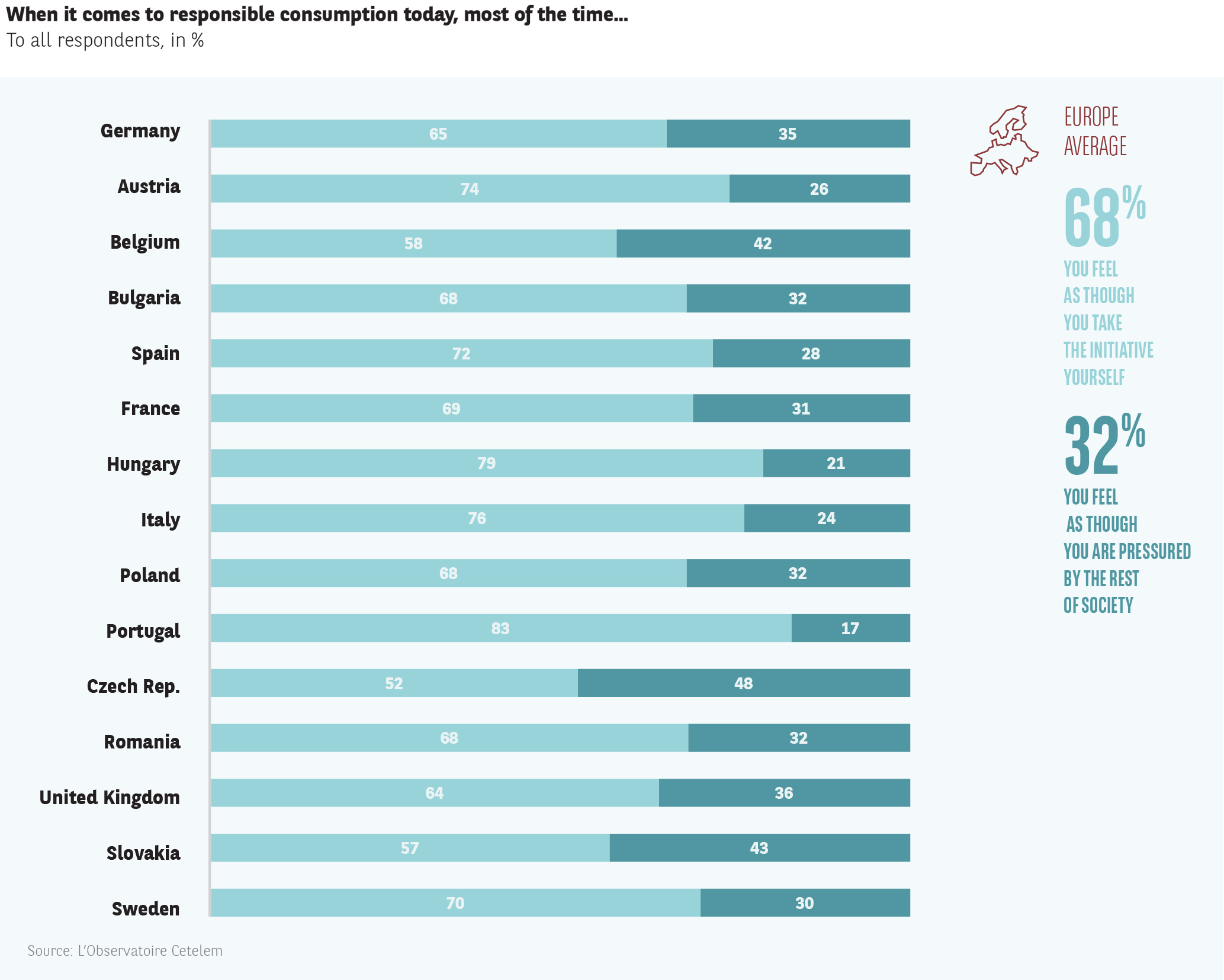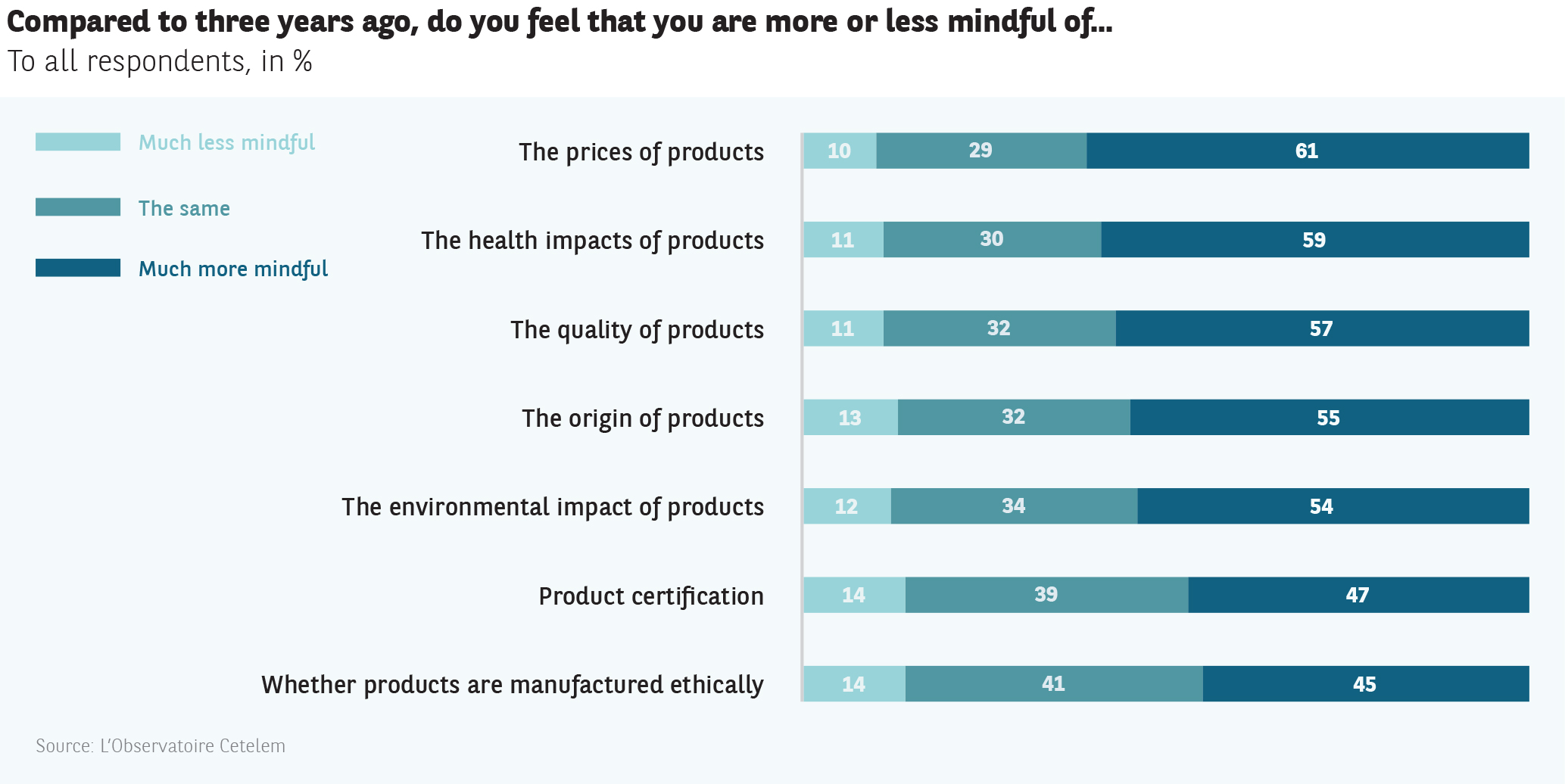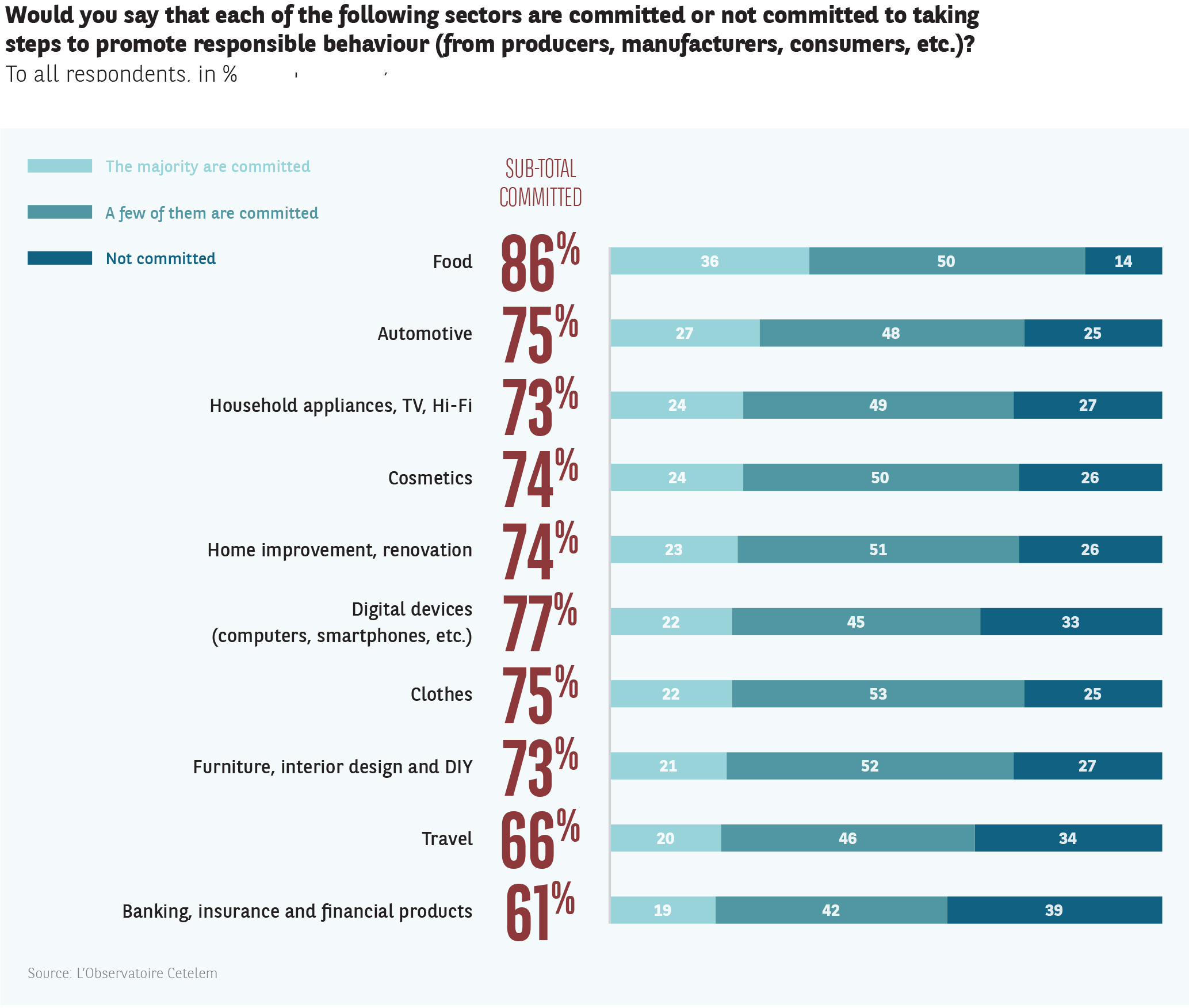Personal engagement in more responsible consumption
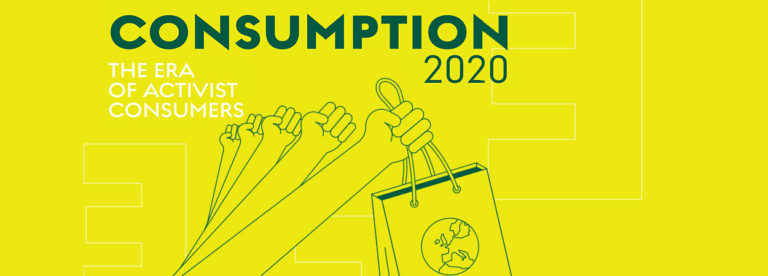

Activist consumers personally engage in causes through concrete action, to change the face of consumption.
Activist consumers are hopeful that general awareness is rising, for the good of the community, preferably the one to which they are closest.
CONSUMERS TAKE CONTROL…
According to 35% of Europeans, consumers themselves will insist upon more responsible consumption (Fig. 20).
This is a more popular “option” than polluter-pays taxes or strict laws (34% and 31%). Consumers in Northern European countries are the most likely to embrace the practices that will shape the future of consumption.
There are no generational differences in this area.
FIG. 20 :
… AND ARE ALREADY TAKING ACTION ON A VAST SCALE
Far from being wishful thinking, this active shift towards more responsible consumption is already underway in the eyes of Europeans (Fig. 21). 87% are already doing their part. the Portuguese and Poles are the most resolute, while the French seem somewhat less committed.
Millennials are less likely than seniors to display this fresh mindset. This is probably a more natural way to live and behave for a generation that has been aware of problems such as global warming since the very beginning.
FIG. 21 :
A DELIBERATE CHOICE
The signs that people are choosing to consume responsibly are nothing to do with chance (Fig. 22).
51% of Europeans see it as a goal and, better still, 21% see it as a rule to live by.
The Italians are the most likely to fall into the latter of the two categories (31%), while the Spanish and the French strive to make it an objective (59% and 55%).
These convictions are the least strongly held in Eastern European countries.
FIG. 22 :
THE INITIATIVE IS BEING TAKEN
A goal, a way of life, but also a personal ambition free from external influences (Fig. 23). 2 in 3 Europeans believe that they are taking the initiative themselves without having to be constrained by social conventions or public opinion to which they should automatically conform.
However, the degree of individual commitment varies from one country to the next. While 83% of Portuguese respondents feel that they are taking concrete steps towards more responsible consumption, only 52% of Czechs are of this view.
The French are within the average range.
More seniors than millennials (72% vs. 66%) have adopted a proactive attitude.
FIG. 23 :
HEALTH IMPACTS ARE A PRIORITY
Consumption patterns and the attention paid to certain criteria also illustrate the changes affecting consumption.
There is a shift towards more active and selective behaviour (Fig. 24).
While Europeans claim, first and foremost, to be more sensitive to the prices of products than they were three years ago (61%), the second greatest priority for Europeans relates to health impacts (59%). Their vigilance in this area is obviously of a personal nature, but it also benefits those who are close to them, especially their family members. It should be noted that in four countries, including France, the importance placed on health impacts over the last three years surpasses the price criterion.
Quality, origin and environmental impact come next in this ranking, with scores above 50%, a sign that consumers are no longer willing to be fooled, even if it means being radically selective.
FIG. 24 :
A trend towards activism
Health lies at the heart of people’s concerns, not least when it comes to food. Having already attracted 14 million users in France, the Yuka application is now becoming a hit in Switzerland, Belgium, Spain, Luxembourg and the United Kingdom.
The Nutri-Score nutritional labelling system, which has been recommended in France since October 2017, became mandatory in advertisements in February 2019.
34 major companies have committed to the initiative.
Spain and Belgium have also opted in. in the UK, a similar system is gradually being adopted by consumers.
In Germany, a number of producers have expressed an interest in the system. Among the major European countries, Italy stands apart by continuing to reject it.
A trend towards activism
Major food companies are becoming increasingly aware that the tastes and expectations of their customers are changing. To better satisfy them, some, like Coca‑Cola, Kraft and Mondelez, have created dedicated business incubators to invest in startups that can improve the nutritional quality, natural content or environmental footprint of their products. With €200 million to spend, Danone Manifesto Ventures is planning to acquire stakes in some 20 companies by the end of 2020. 301 Inc., a General Mills entity, has already invested in more than 10 startups in the United States.
THE A-STUDENTS OF RESPONSIBLE CONSUMPTION
Europeans have a positive opinion of the various economic sectors’ commitment to more responsible consumption (Fig. 25).
Significantly ahead of the rest, the food sector scores the highest (86%). This result could probably be explained by greater awareness of the development of organic farming and short supply chains, thanks to more effective communication.
The automotive industry’s second place in the ranking (75%) stems from a similar rationale. the efforts made by manufacturers to develop hybrid and electric cars have not gone unnoticed, although they have not translated into significant sales volumes.
At the bottom of the table are travel (66%), which is dragged down by the amount of transport it involves, and the finance world, which is penalised by its intangibility.
FIG. 25 :

